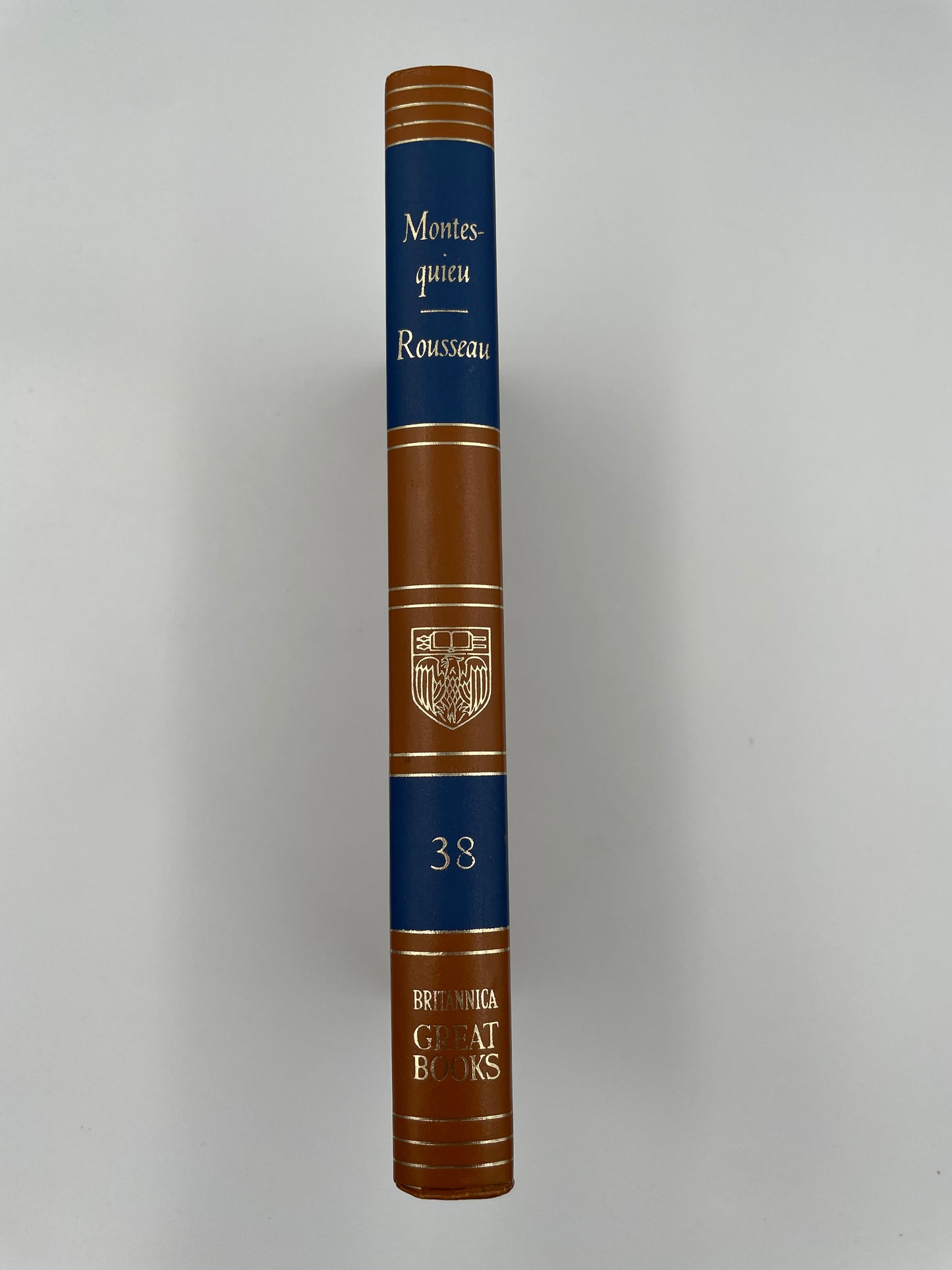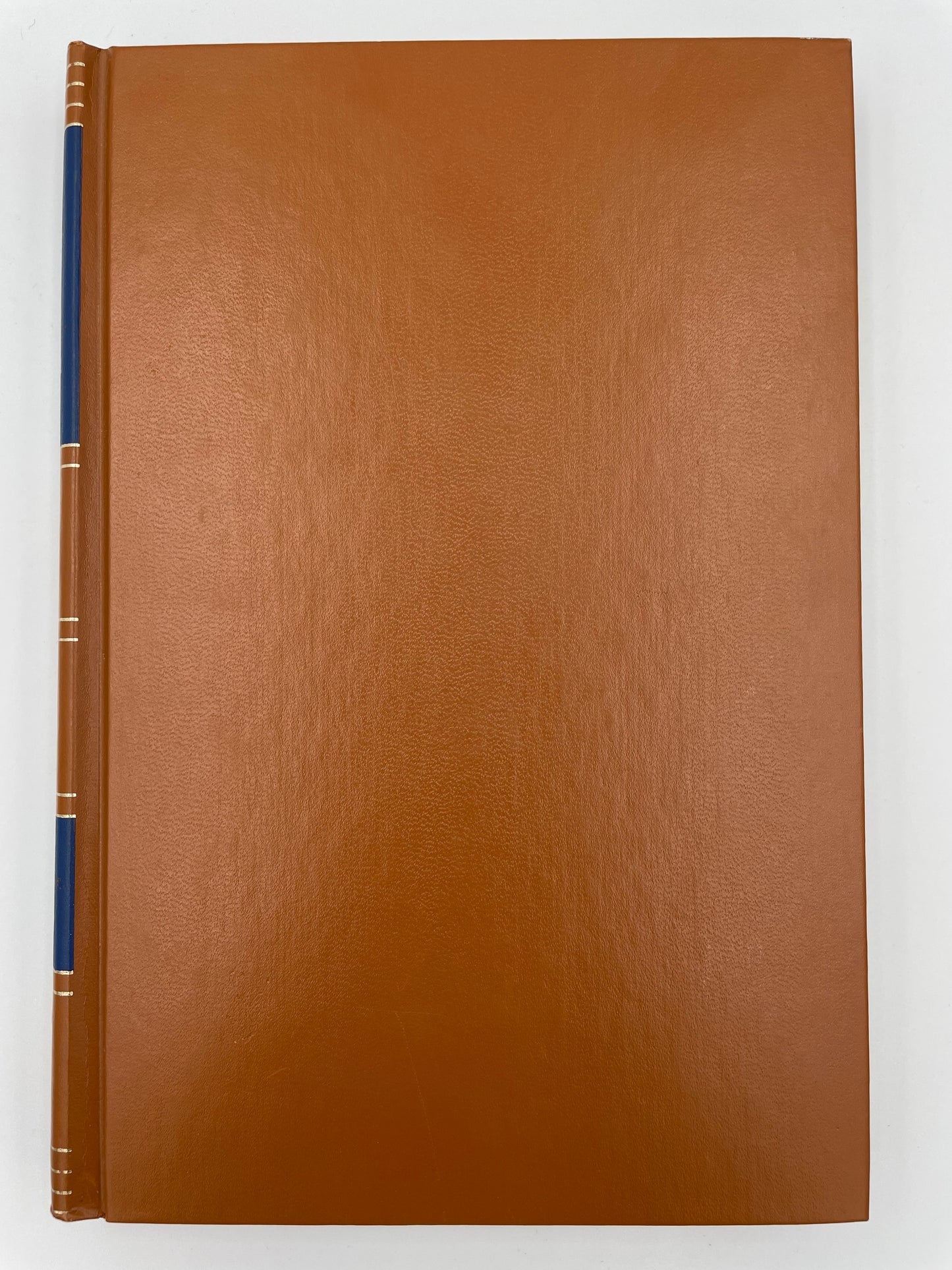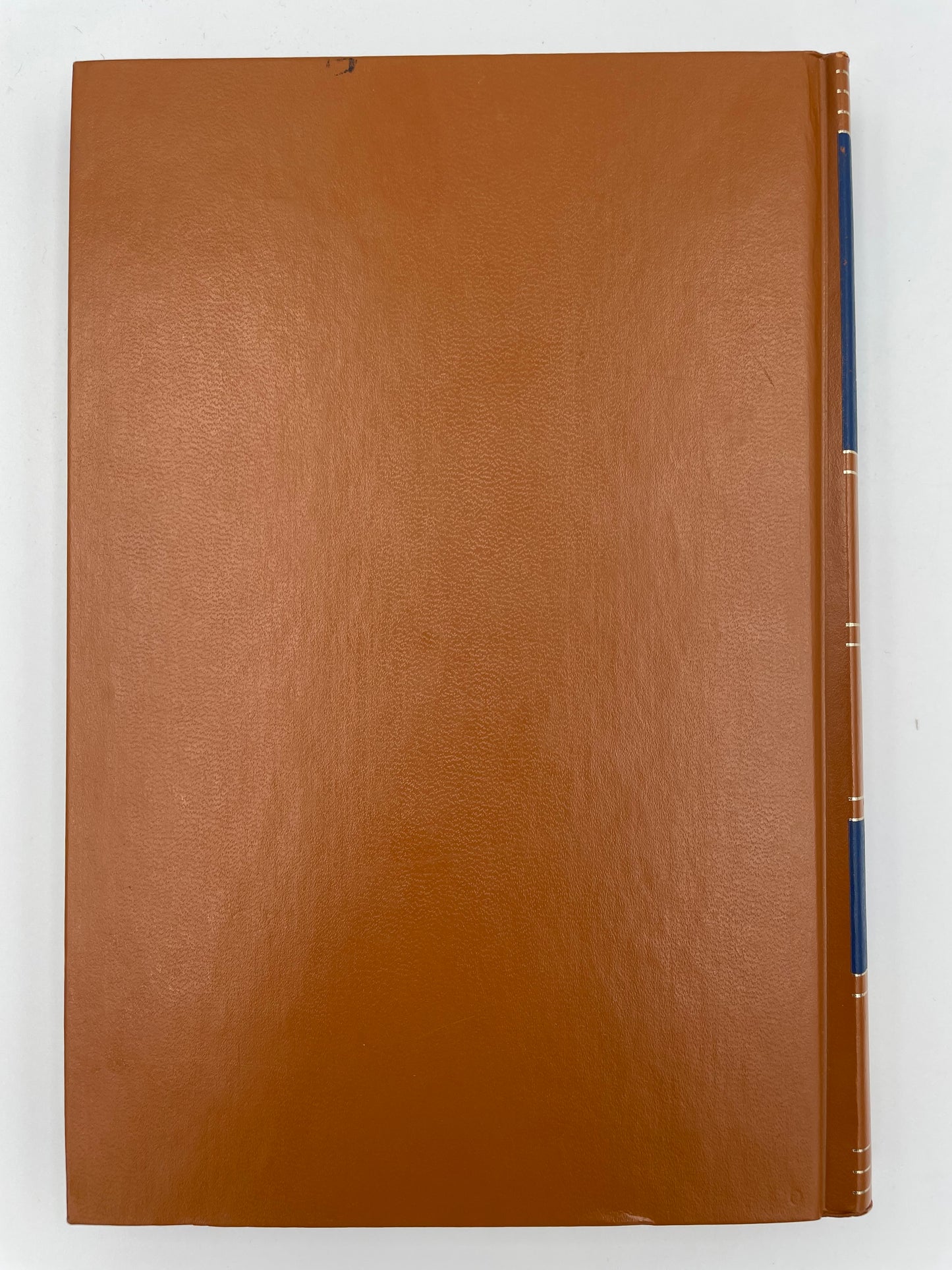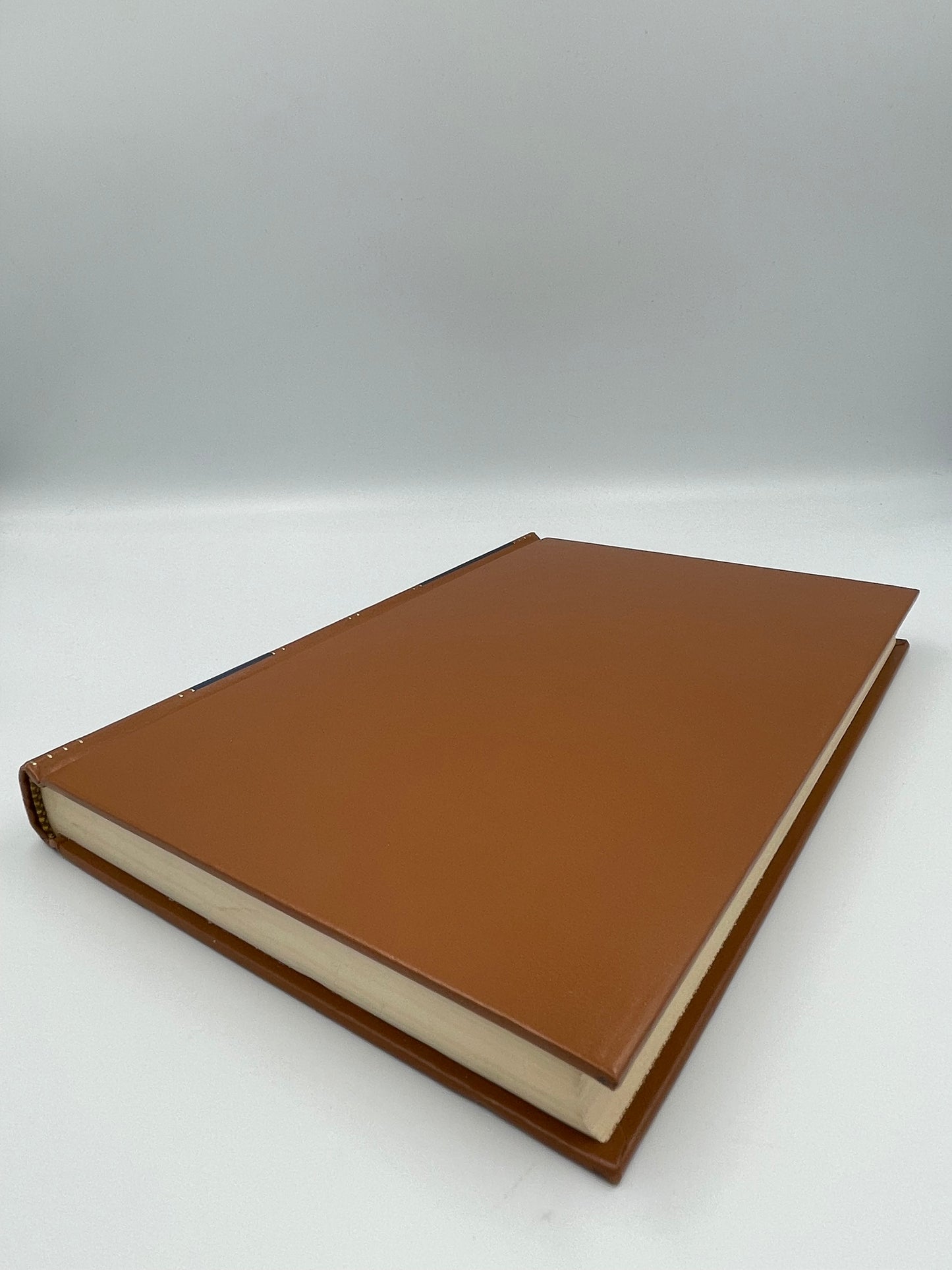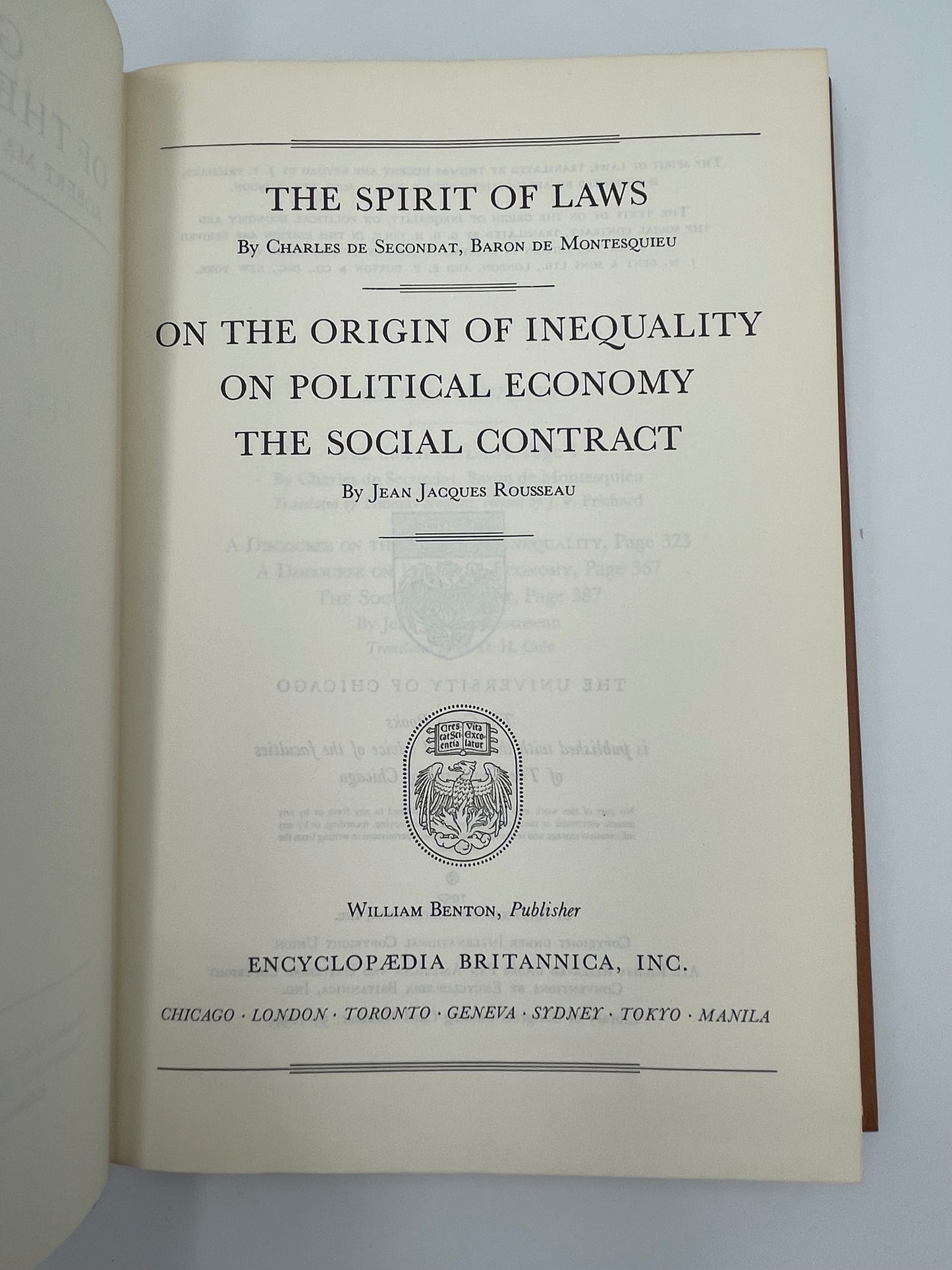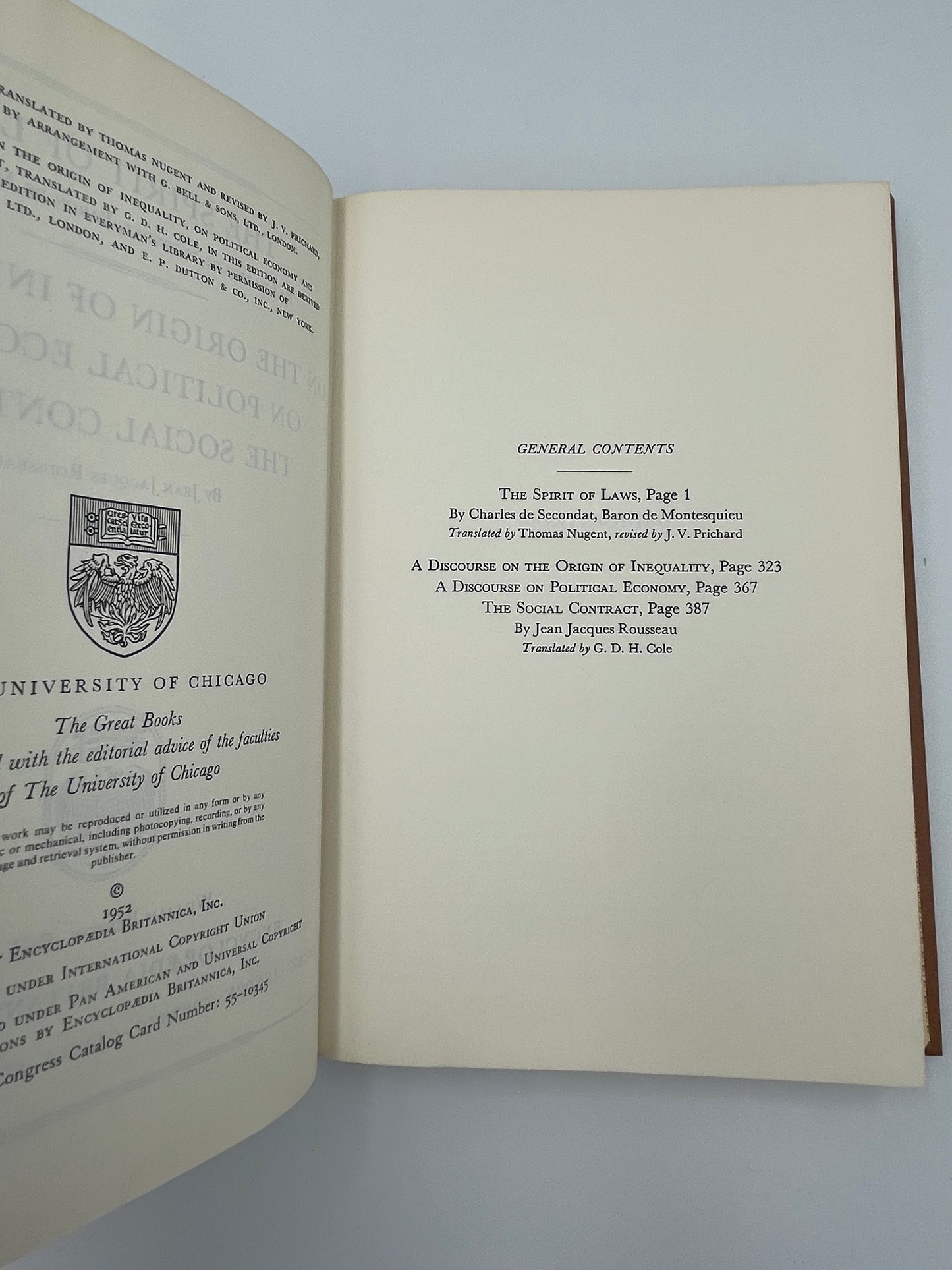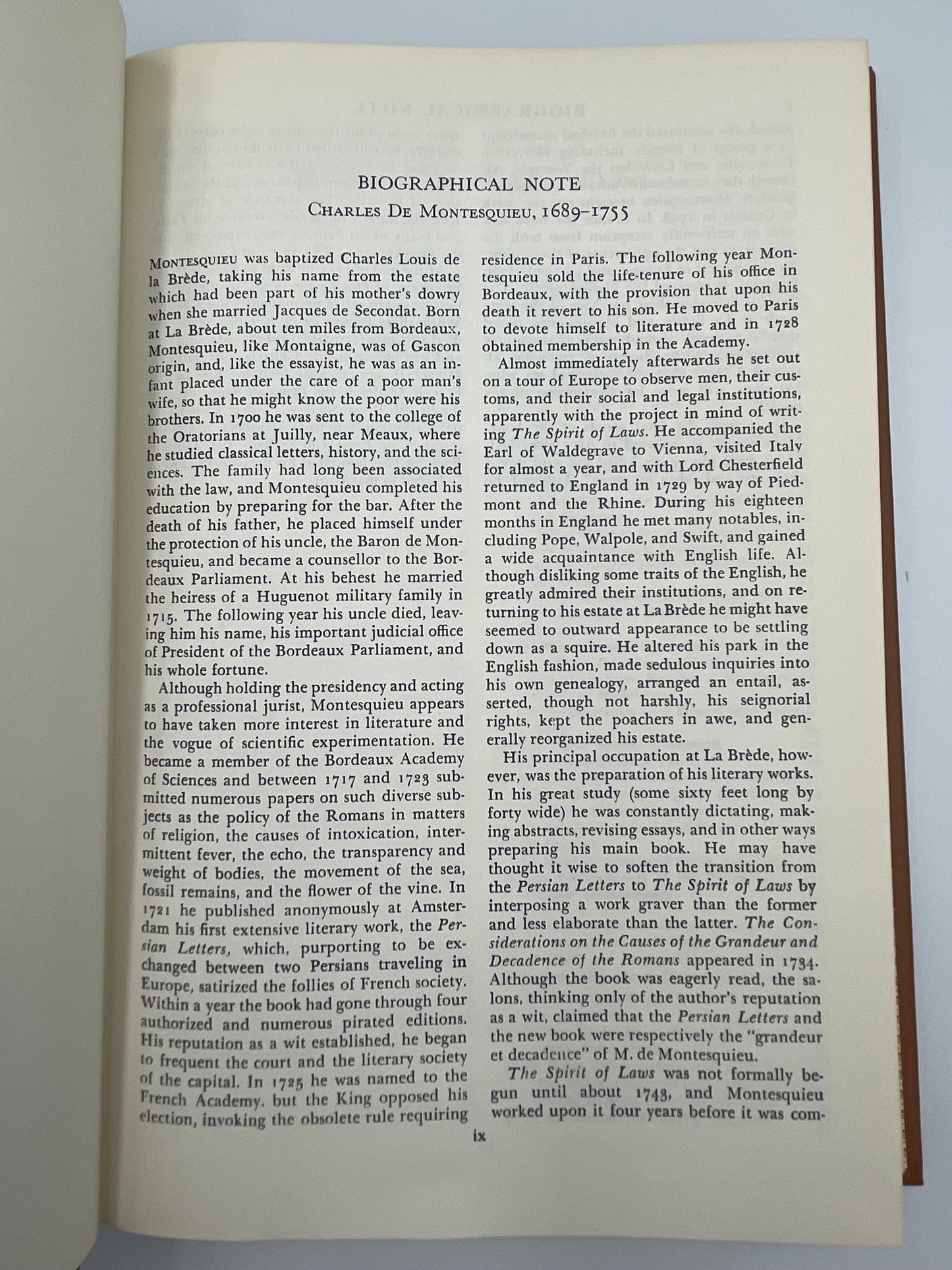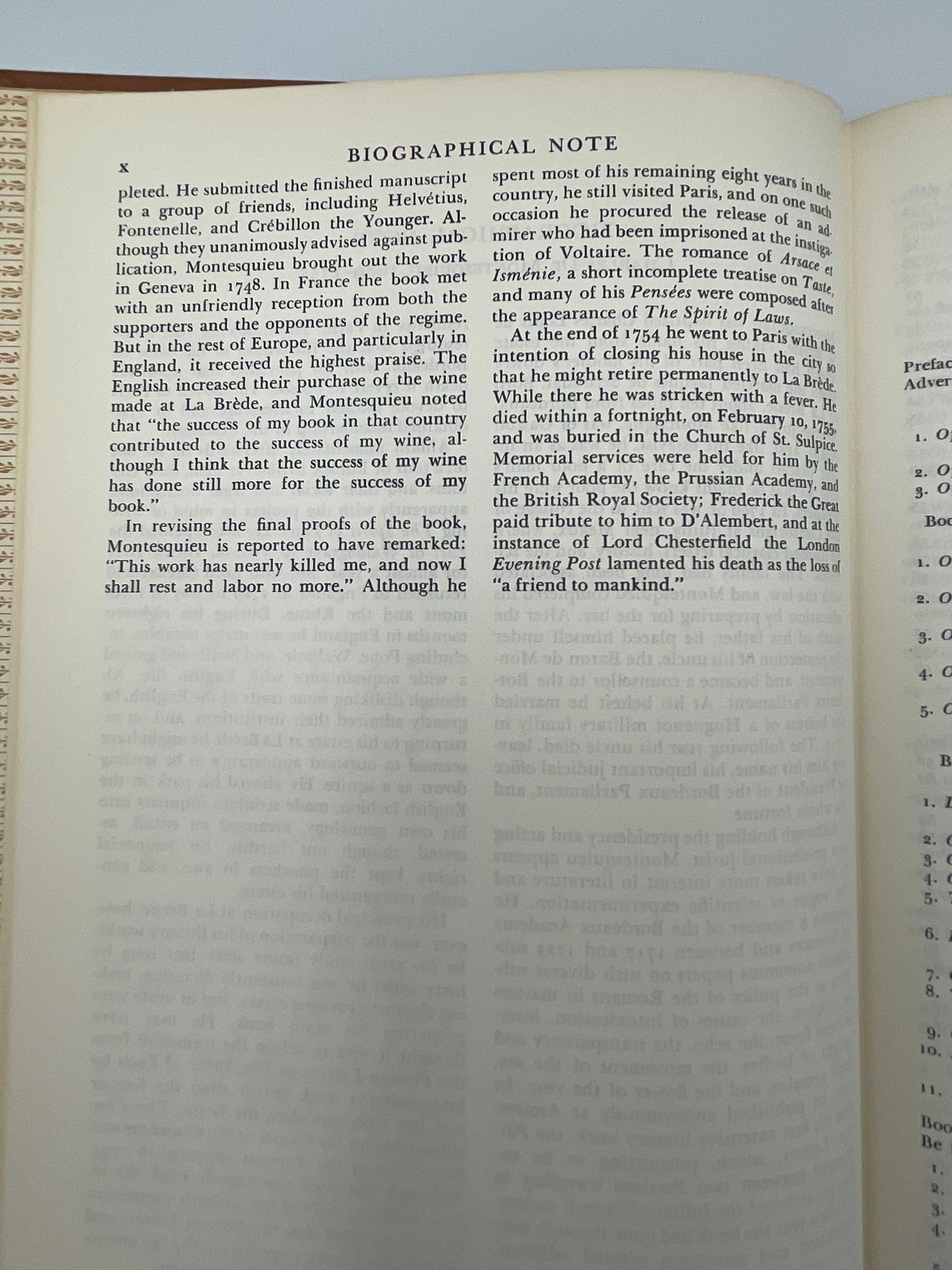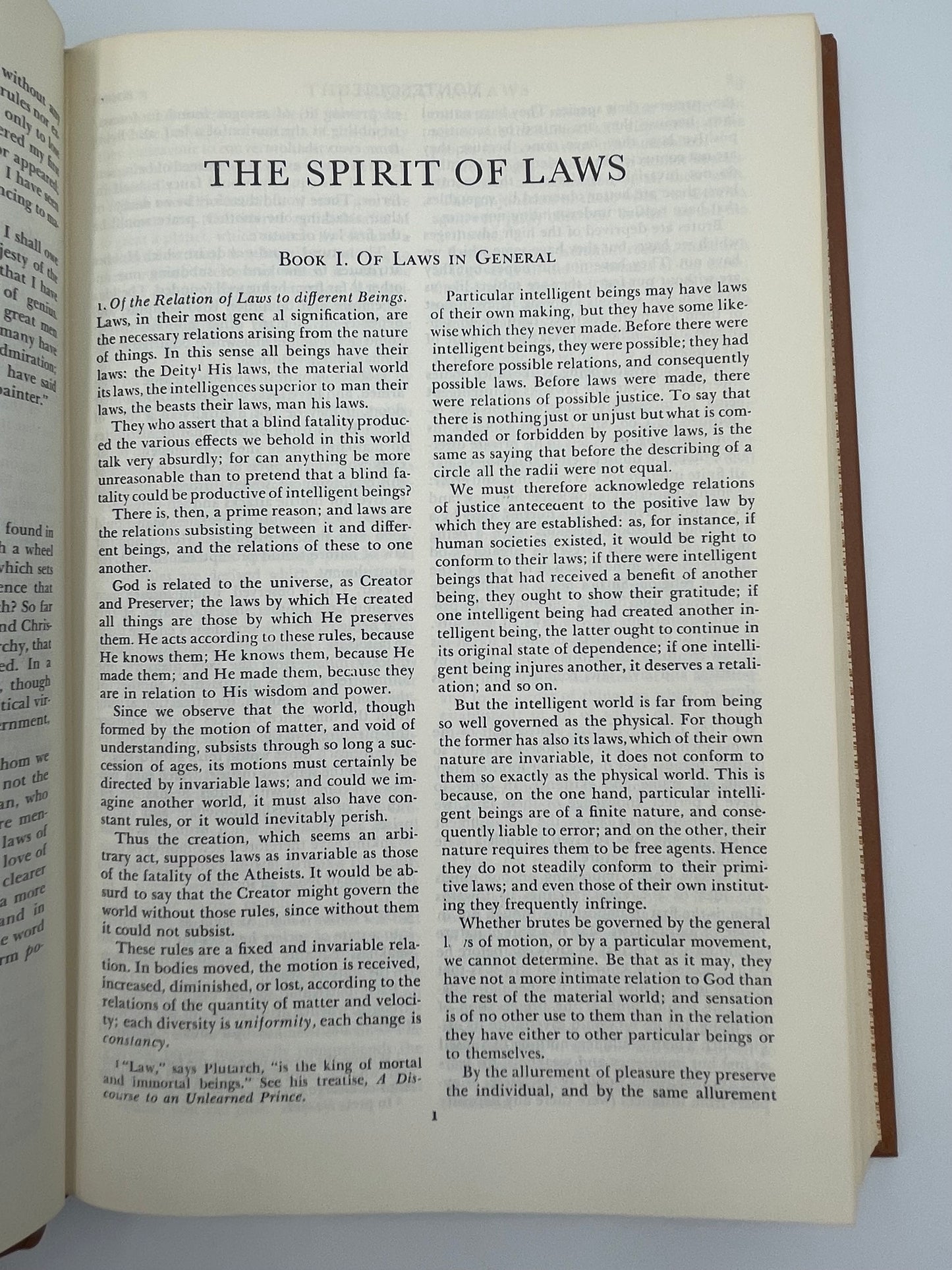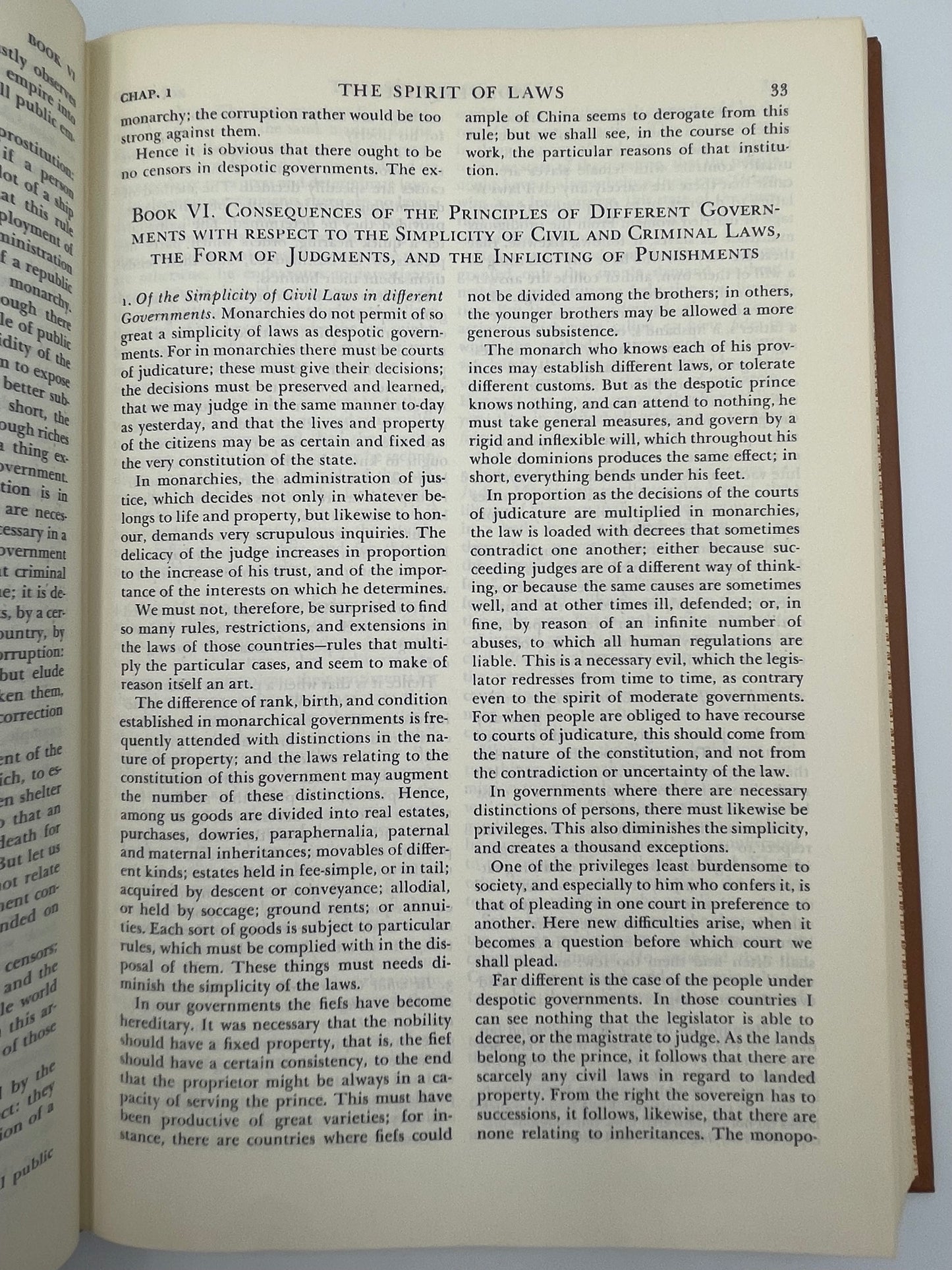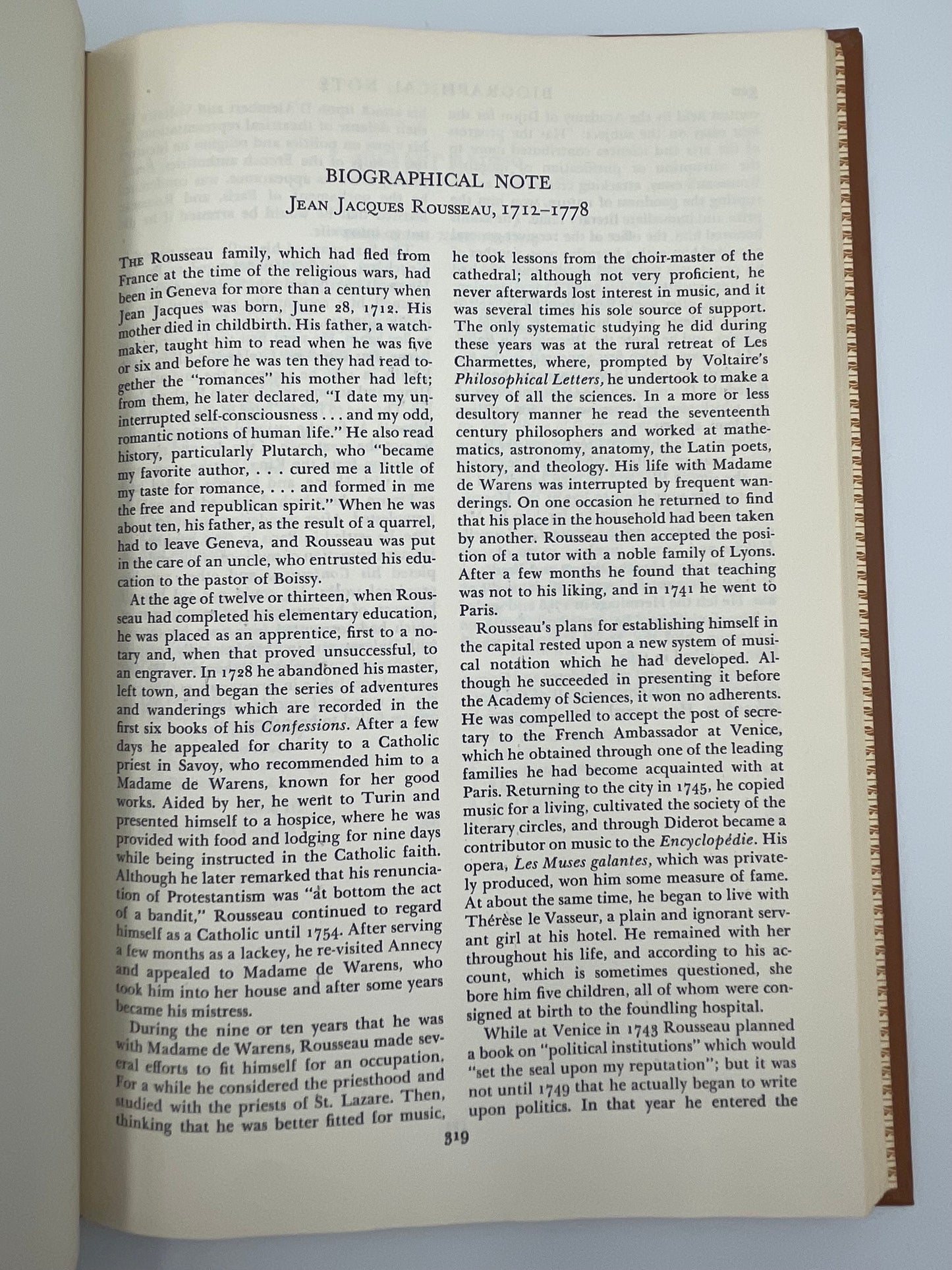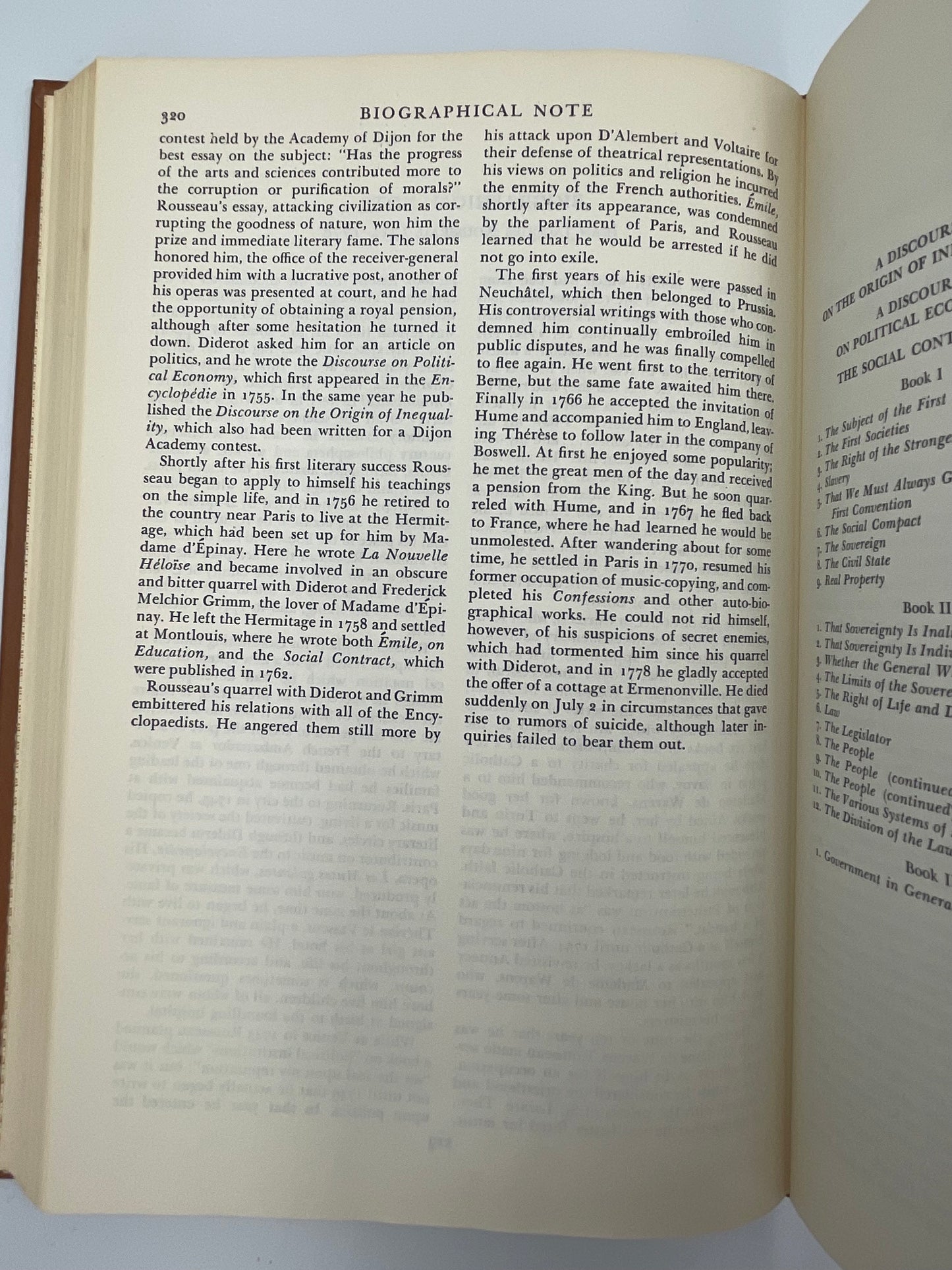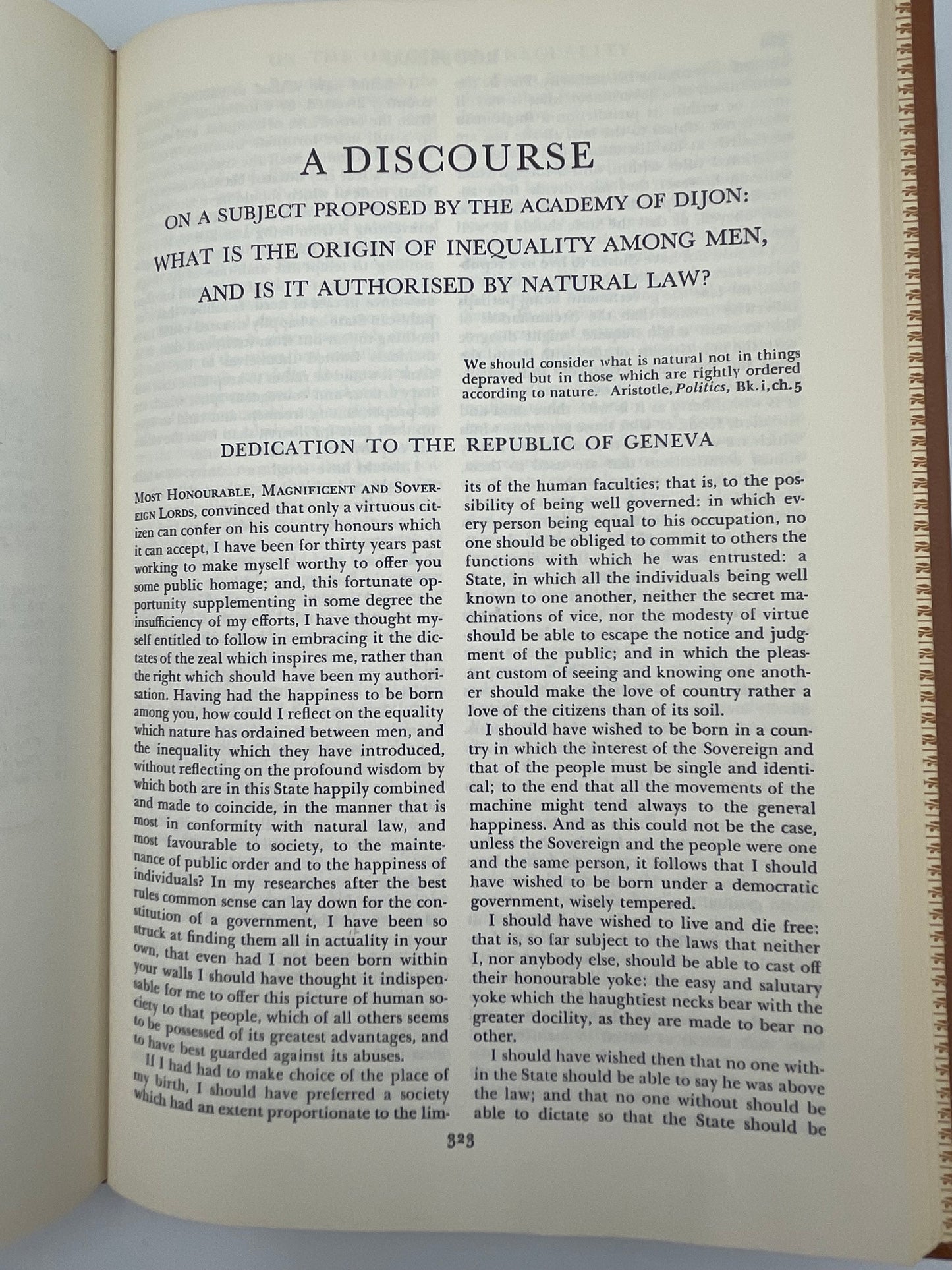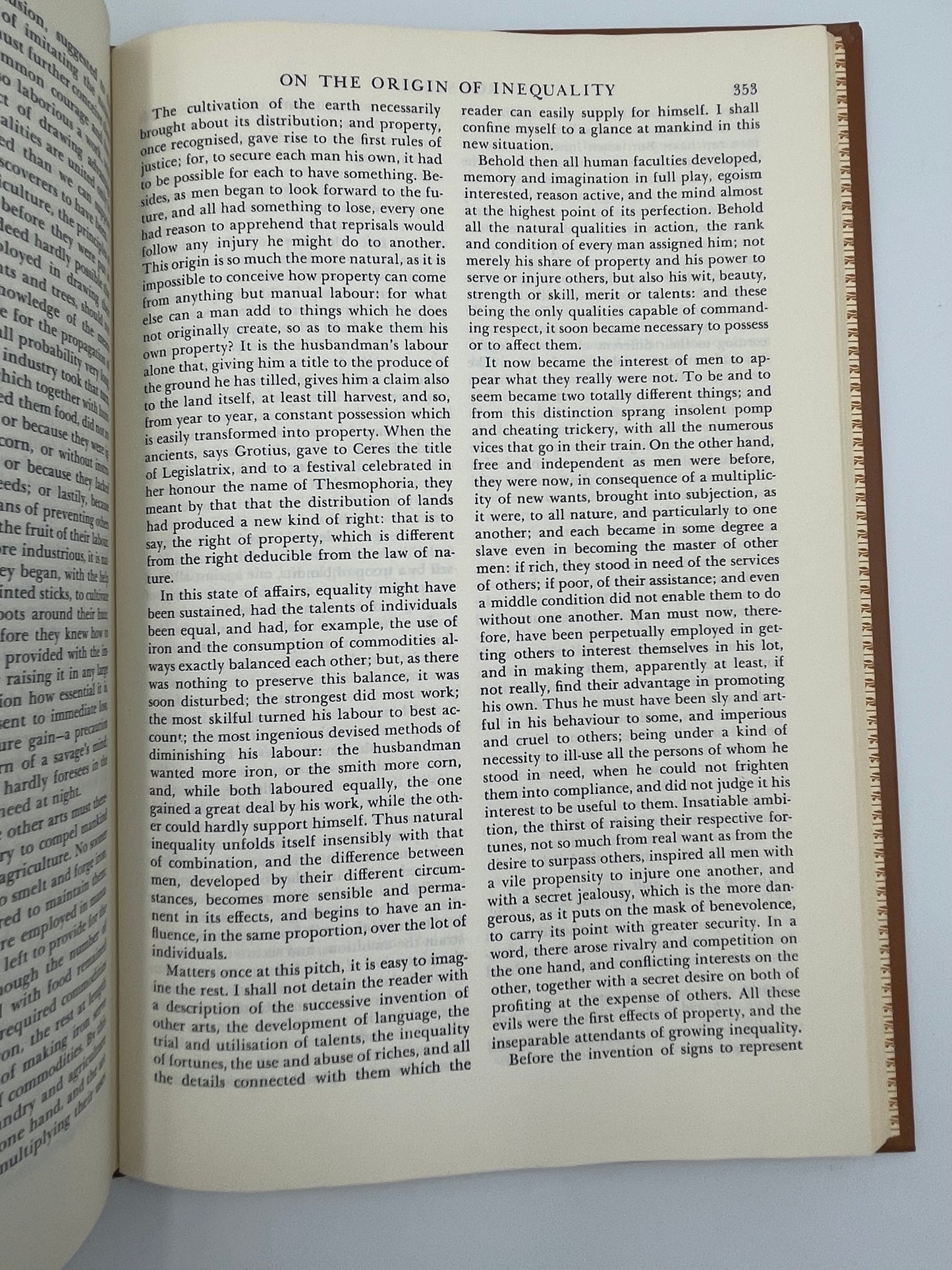Encyclopaedia Britannica
Montesquieu. Rousseau (Britannica: Great Books of the Western World)
Montesquieu. Rousseau (Britannica: Great Books of the Western World)
Couldn't load pickup availability
From the outstanding collection of one of the most sought out and respected series ever published by Encyclopedia Britannica. This is the 1st 1952 Britannica edition. This copy is leatherette bound, smyth sewn, with striped tail and head bands. The lettering on the spine is gilted. Condition: Good. (see all images). Edited with the advice of The University of Chicago. 673g, 17x24x2cm Charles de Secondat, Baron de Montesquieu: The Spirit of Laws.Jean Jacques Rousseau: On the Origin of Inequality. On Political Economy. The Social Contract.The works by Montesquieu and Rousseau are seminal in political philosophy and social theory, profoundly influencing modern thought on governance, society, and economics. Their writings offer deep insights into the nature of political power, the development of societal institutions, and the principles of justice and equality, making them key texts in understanding the evolution of political philosophy and social theory. Charles de Secondat, Baron de Montesquieu: The Spirit of the Laws: Montesquieu’s analysis of different political systems and their legal frameworks provides a foundational understanding of the separation of powers, which significantly influenced the design of modern democratic governments. He argues for the necessity of separating legislative, executive, and judicial powers to prevent tyranny and ensure liberty. The work also explores the impact of geography, climate, and culture on political institutions, offering a comparative approach to political analysis that remains relevant in political science today.Jean-Jacques Rousseau Discourse on the Origin and Basis of Inequality Among Men (On the Origin of Inequality): Rousseau critiques the development of human society from a state of nature to organized civilization, arguing that the emergence of private property led to social inequality and moral corruption. His ideas challenge the legitimacy of social structures and highlight the need for a more equitable social order, laying the groundwork for later revolutionary and reformist thought.Discourse on Political Economy: This work elaborates on Rousseau’s views on economic and social organization, advocating for a form of economy that aligns with his principles of equality and the common good. It explores how economic practices influence social justice and the distribution of wealth, contributing to the discourse on economic systems and their societal impacts. The Social Contract: Rousseau’s influential text argues that legitimate political authority derives from a social contract agreed upon by all members of society. He emphasizes the concept of popular sovereignty and the idea that individuals achieve true freedom by participating in the formation of the general will. This work has been crucial in shaping democratic theory and the principles of modern political legitimacy and citizenship.
Share
